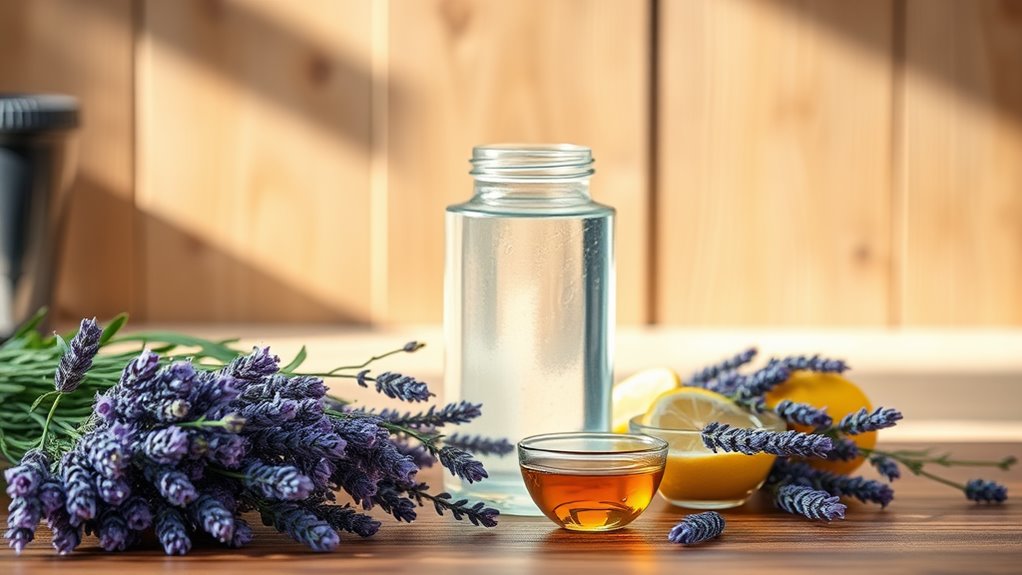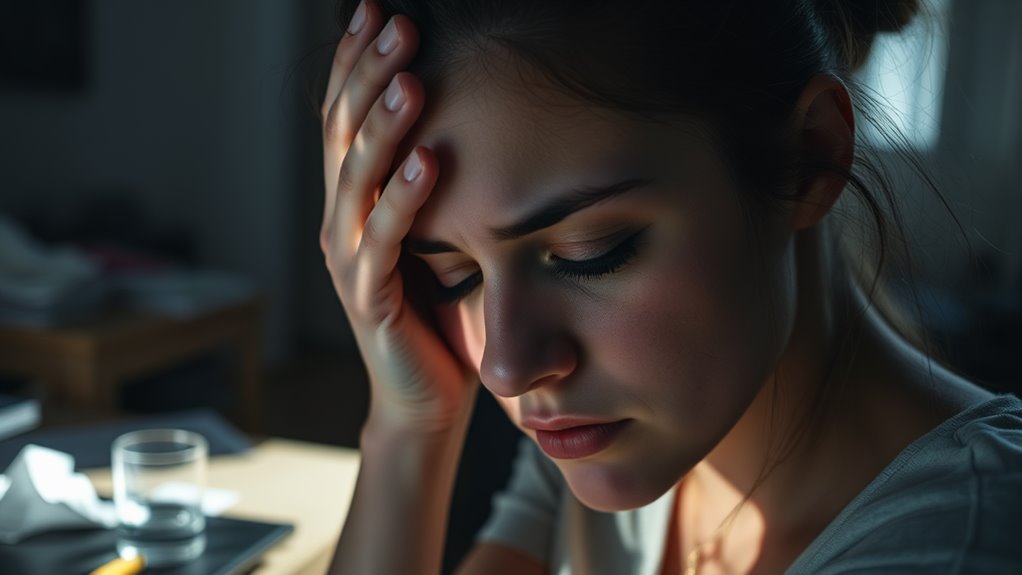Get Rid of Migraines for Good With This Easy DIY Remedy!
To get rid of migraines for good, start by identifying your triggers, like certain foods or stress. Try DIY remedies like inhaling peppermint oil or sipping ginger tea for immediate relief. Incorporating lifestyle changes, such as a consistent sleep schedule and regular exercise, can also help prevent future migraines. Don’t forget dietary adjustments; staying hydrated and avoiding aged cheeses may be key. There’s much more to learn about managing migraines effectively.
Understanding Migraines: Causes and Symptoms
When you experience a migraine, it’s essential to understand what’s happening in your body. Migraines aren’t just bad headaches; they’re complex neurological events.
You might notice symptoms like intense throbbing pain, often on one side of your head, accompanied by nausea, sensitivity to light, and sound. Hormonal changes, stress, certain foods, and environmental factors can trigger these episodes.
Your brain’s blood vessels may dilate, leading to inflammation and pain. Additionally, the aura some people experience can cause visual disturbances or tingling sensations.
Recognizing these causes and symptoms helps you identify patterns and manage your migraines more effectively. By understanding the underlying mechanisms, you can better prepare for and cope with future attacks, making your experience more manageable overall.
Natural Remedies for Immediate Relief
Understanding the triggers and symptoms of migraines can empower you to seek effective relief when an attack hits. Here are some natural remedies that may provide immediate comfort:
| Remedy | Description |
|---|---|
| Peppermint Oil | Inhale or apply diluted to temples for soothing relief. |
| Ginger Tea | Brew fresh ginger to help reduce nausea and discomfort. |
| Cold Compress | Place on your forehead to numb pain and reduce inflammation. |
| Lavender Essential Oil | Inhale or apply to relax and ease headache tension. |
| Hydration | Drink water to combat dehydration, a common trigger. |
Try these remedies the next time you feel a migraine coming on. They might just help you find that much-needed relief!
Lifestyle Changes to Prevent Migraines
Making simple lifestyle changes can significantly reduce the frequency and severity of migraines. Start by establishing a consistent sleep schedule. Aim for seven to eight hours of quality sleep each night, as irregular sleep patterns can trigger attacks.
Next, manage stress through techniques like meditation, yoga, or deep-breathing exercises. Regular physical activity also helps; find an exercise routine you enjoy and stick with it.
Stay hydrated throughout the day, as dehydration can lead to headaches. Lastly, pay attention to your environment—avoid strong odors, bright lights, and loud noises, which can all trigger migraines.
Dietary Adjustments for Migraine Management
Although each person’s triggers may vary, certain dietary adjustments can play a crucial role in managing migraines. By making a few simple changes, you can potentially reduce the frequency and severity of your attacks.
Here are some adjustments you might consider:
-
Stay Hydrated: Drink plenty of water throughout the day to prevent dehydration, a common migraine trigger.
-
Limit Caffeine: While some caffeine can help alleviate headaches, too much can lead to rebound headaches.
-
Avoid Aged Cheeses: These contain tyramine, which may trigger migraines in sensitive individuals.
-
Eat Regularly: Skipping meals can lead to low blood sugar, a known migraine trigger.
Incorporating these changes into your diet may help you find relief from migraines.
Stress Management Techniques
When you learn to manage stress effectively, you can significantly reduce the frequency and intensity of migraines.
Start by practicing mindfulness techniques such as meditation or deep breathing exercises. These methods help ground you in the present moment, easing tension.
Regular physical activity is another powerful tool; even a daily walk can release endorphins, boosting your mood.
Also, prioritize your sleep schedule—aim for 7 to 9 hours of quality rest each night.
Don’t underestimate the power of social support; talking to friends or family can provide a much-needed release.
Lastly, consider journaling your thoughts and feelings, which can help you process stressors and find solutions.
When to Seek Professional Help
Recognizing when to seek professional help for migraines can be just as important as managing stress. If you’re experiencing migraines, consider consulting a healthcare provider if:
- Your headaches worsen in frequency or severity.
- You notice new symptoms, like visual disturbances or weakness.
- Over-the-counter medications don’t provide relief.
- Migraines disrupt your daily activities or quality of life.
Don’t hesitate to reach out for support. A healthcare professional can help identify underlying issues and suggest tailored treatments, whether it’s medication, therapy, or lifestyle changes.
Taking proactive steps can improve your well-being and help you regain control over your life. Remember, you’re not alone in this journey. Seeking help is a sign of strength.
Frequently Asked Questions
Can Migraines Be Hereditary or Genetic?
Yes, migraines can be hereditary. If you have a family history of migraines, you’re more likely to experience them yourself. Genetics play a significant role in the likelihood of developing this condition.
Are There Specific Triggers to Avoid for Certain Individuals?
Yes, you should identify and avoid specific triggers that cause your migraines. Common triggers include certain foods, stress, lack of sleep, and hormonal changes. Keeping a diary can help you pinpoint what affects you personally.
How Long Do Migraines Typically Last?
Migraines typically last anywhere from four hours to three days, depending on the individual. You might notice that stress, certain foods, or lack of sleep can influence the duration, so it’s important to track your patterns.
Can Migraines Cause Long-Term Damage or Complications?
Yes, migraines can lead to long-term damage or complications. Frequent attacks may increase the risk of conditions like chronic migraine or even contribute to issues like anxiety or depression. It’s crucial to manage them effectively.
Are There Age Restrictions for Using DIY Remedies?
When considering DIY remedies, age restrictions can vary. Generally, adults can safely use them, but children and seniors should consult a healthcare professional first to ensure safety and effectiveness for their specific health needs.





